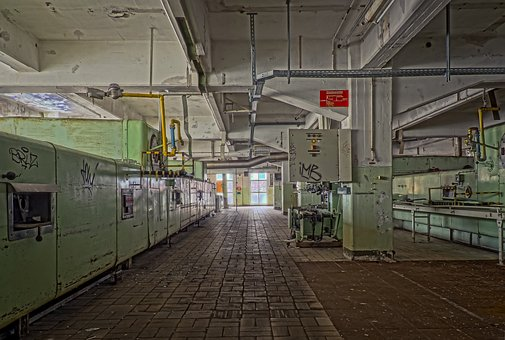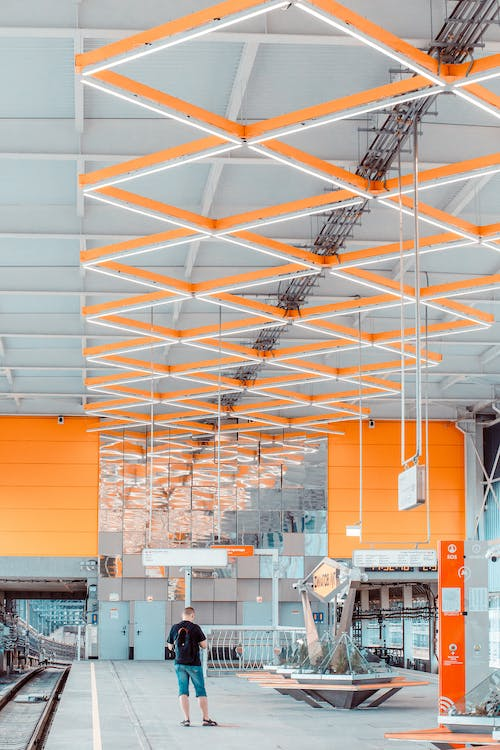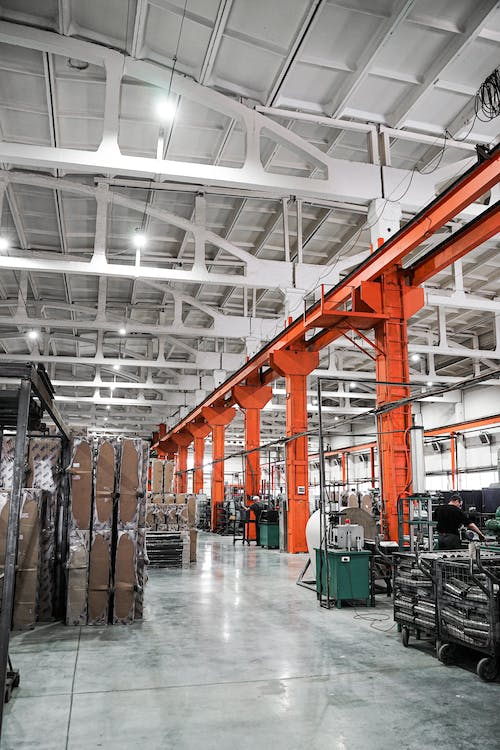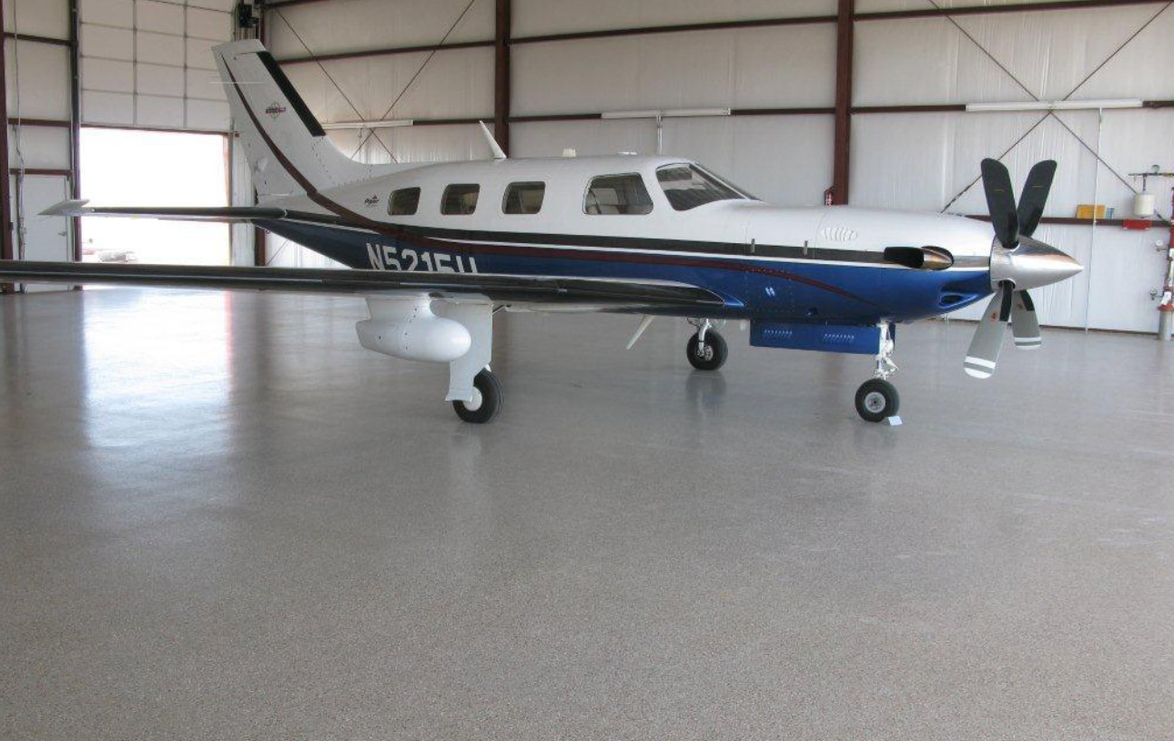Are you looking to install flooring in a manufacturing facility? Here’s what you need to know:
Since the manufacturing industry has evolved significantly from its initial stages, it’s necessary to construct floors such that they can be used for several years without any major issues. This means that the installation must be done by professional flooring contractors with proper attention to all precautions.
While there are a variety of factors to consider when choosing the right flooring option for a manufacturing facility, such as aesthetics, durability, materials, time, and maintenance cost (to name a few), one thing that often gets overlooked is the purpose of the flooring.
This is why manufacturing facilities are often required to take a pragmatic approach when it comes to their flooring selections. The last thing you need when running your facility is an expensive mistake like employee injury or damage to equipment based on poor or incorrect choices.
So, if your business depends on the durability and efficiency of your flooring, here are some different options to consider when remodeling or building a new manufacturing facility:
1. Tile
Tile is a popular choice among manufacturers because it comes in a variety of colors and styles.
Tile is typically installed in large areas that require heavy traffic, such as warehouses, offices, and other industrial settings where heavy footfall is expected. It’s also resistant to oil and grease, so you don’t have to worry about spills or other contaminants damaging your flooring material.
However, there is a downside to installing tiles as well. Tiles are porous, which means they absorb moisture from the air and can cause mold problems in wet areas of the facility, unlike epoxy flooring. Tiles also have limited slip resistance, making it more likely for employees to trip or fall over them. It also has a high porosity rating, so it’s likely to absorb odors from other materials in the area.
2. Vinyl
Vinyl is another great alternative to tile floors due to its durability, moisture resistance, and ease of cleaning.
Vinyl tile can withstand heavy foot traffic without chipping or cracking. This makes it ideal for busy work areas like production lines and assembly lines. Similarly, it’s also an excellent choice for low-traffic areas such as hallways and entrances of manufacturing facilities where dirt accumulation on the surface could cause problems with cleaning.
However, vinyl has some drawbacks when it comes to manufacturing facilities. Vinyl floors are not effective at dissipating heat and moisture, so they’re prone to melting at high temperatures and mold growth. They are also not as durable as other materials like concrete epoxy floors and hardwood floors.
3. Laminate
Laminate is a durable and affordable option that can be installed quickly. It’s also one of the most popular choices among business owners because it looks like wood and doesn’t have a high maintenance cost.
However, it can be scratched easily, so laminate floors must be protected with a scratch-resistant coating or sealer to protect against wear and tear. Similarly, laminate floors also tend to pick up stains easily, so if your facility is located in a high-traffic area, you may want to consider other flooring options, like concrete epoxy floors.
4. Polished Concrete
Most manufacturing floors are made from concrete because they’re strong and durable, making them ideal for heavy industrial applications.
A polished concrete floor looks like wood but has better resistance to scratches and stains than laminate. Polished concrete also offers good sound absorption, making it an ideal choice for high-traffic areas in manufacturing facilities.
5. Steel-Coated Epoxy Flooring
Steel-coated epoxy flooring is a durable and versatile surface that can be used in many different industrial applications. The coating protects the epoxy underneath from damage while also providing an attractive look that can be easily maintained. Steel-coated epoxy floors offer many benefits over other floors, including:
- High Impact Resistance:
High impact resistance of steel-coated epoxy floors ensures that your facility stays safe from accidents and falls. It also provides better protection than standard concrete floors and prevents damage caused by heavy equipment or machinery.
- Durability:
Epoxy floors are known for their durability, strength, and ease of maintenance, suitable for manufacturing facilities in need to withstand heavy foot traffic and occasional spills. We say this because epoxy flooring is made from a layer of steel bonded to a layer of epoxy resin.
This combination makes an incredibly strong floor that can withstand heavy machinery such as forklifts and tractors without denting or scratching.
- Versatility:
In addition to being durable and easy to maintain, steel-coated epoxy floors come in a wide range of colors and styles that can be customized based on your needs. You can choose from a variety of stainable finishes, such as acrylics, oil-based stains, or high-gloss lacquers.
They also have different flakes that come in various shapes and sizes, so there’s no need to worry about getting something that doesn’t fit your space perfectly!
Types Of Steel-Coated Epoxy Flooring
Steel-coated epoxy floors are available in a variety of styles, including:
1. Rigid Epoxy Flooring
This is the most common type of epoxy flooring used in manufacturing facilities. Rigid epoxy floors are made out of two layers of hardworking materials — epoxy resin and hardener.
The hardener is applied to the sanded surface of the floor by a professional epoxy flooring contractor, followed by the application of epoxy resin between each layer of hardener. This process allows you to create any design or pattern you want on your concrete floor.
2. Epoxy Floors With Kickers
Epoxy floors with kickers have been designed to look like natural wood or tile, which makes them more attractive than other factory flooring options. Kickers are small wooden strips that are added under your epoxy floor to give it a scuff-free finish that looks like real wood or tile.
Get The Perfect Epoxy Flooring For Your Manufacturing Facility
Are you looking for easy-to-clean, long-lasting, and scratch-resistant flooring systems for your manufacturing facility? You’re at the right place!
As a reliable epoxy flooring contractor, Steel Coated Epoxy Floors is an experienced floor epoxy company committed to offering clients residential and commercial epoxy floor coating services.
Our reputation as an industry leader in epoxy flooring installation has made us the go-to choice for many businesses throughout Draper, Layton, Prescott, and Las Vegas. We work hard to ensure that we provide each customer with high-quality and versatile steel-coated epoxy flooring options at an affordable price point without sacrificing reliability.
So, what are you waiting for? Contact us today and get a free quote for our services!






